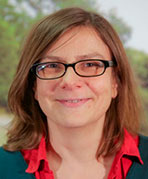Partners
InnoForESt brings together sixteen partners from nine EU countries. The consortium includes leaders from European universities, research institutes, forest and environmental administrations, wood-processing and consultancy firms, hunting associations, forest managers, land-owners, and NGOs.
All partners are interested in and experienced with investigating and developing novel policy and business strategies for ecosystem services in forests as well as the financing thereof. In addition, the project engages an extensive set of associate practice partners that function as multipliers and catalysts.

HNEE – Eberswalde University for Sustainable Development
The University of Applied Sciences for Sustainable Development Eberswalde (HNEE) was founded in 1830 as the Forestry Academy. Research at the HNEE is firmly connected with the principles of sustainability. The research is focused in the two research areas of the university: “Sustainable Rural Development” and “Sustainable production, processing and process engineering of materials and products based on natural materials”. As one of Germany’s strongest research universities, HNEE works with numerous regional and international partners a expanded network for the long-term in recent years.

Faculty of Forest and Environment
Alfred-Möller-Str. 1, Haus 11 D
16225 Eberswalde
+49 (0)3334-657 194
carsten.mann@hnee.de

Faculty of Forest and Environment
Alfred-Möller-Str. 1, Haus 11
D-16225 Eberswalde
+49 (0)3334-657 382
mhernandez@hnee.de

Faculty of Forest and Environment
Alfred-Möller-Str. 1, Haus 11
D-16225 Eberswalde
stefan.sorge@hnee.de

IREAS – Institute for Structural Policy


UNIVERSEUM – Science Centre Gothenburg
Universeum is a for-profit private corporation placed in the heart of Gothenburg, Sweden and the largest Science Centre in the Nordic region. Open every day, year around, Universeum is an arena for inspiration and experiential learning where the world is explored through science and technology. With high quality performance and content Universeum is a venue which develops individual creativity, critical thinking and innovation. It stimulates the lifelong learning by supplying transformative experiences, nudging our visitors into behaviour changes that contributes to global sustainability goals.


PAT – Forest and Wildlife Service of the Autonomous Province of Trento
The Autonomous Province of Trento (PAT) is a typical Alpine region located in the north-east of the Italian Alps. The territory covers an area of about 6200 square km (63% forest), crossed by 3338 public water courses. Population is approximately 500000 inhabitants, spread in more than 170 municipalities. By virtue of a special Statute signed in 1972, PAT enjoys a very wide legislative, administrative and financial autonomy in all the most important fields of public government, included forests. The main competences of Department for Territory, Agriculture, Environment and Forestry (DipTaaf-PAT, Dipartimento Territorio, agricoltura, ambiente e foreste) are: urban planning and landscape protection, environmental policies, energy, use of public waters and derivations (EU Floods Directive, EU Water Framework Directive), assessments and environmental authorizations, management of public waterways and forests, nature conservation, protected areas and parks, wildlife. It employs about 835 people with a budget of about 100 million euro (2016, not included the personnel costs). More information in www.provincia.tn.it

alessandro.wolynski@provincia.tn.it



ANE – Academy of Sustainable Development
The Academy for Sustainable Development Mecklenburg-Vorpommern (ANE) is a charity foundation. GARDEN OF METROPOLIS is the regional synonym for sustainability – rural areas and their sustainable development are particularly important to us. Why? Because we are convinced of their potential, their natural resources and their people! All should receive the appreciation they deserve and be recognized for the variety of services they provide. Decentralized energy transition, good food from the region, holidays in the countryside and practical climate protection – all this is what rural areas will and must be able to do in the future.


FFC – Finnish Forest Centre – Suomen Metsäkeskus
The Finnish Forest Centre (Suomen metsäkeskus) is a governmental forestry organisation covering the whole country, employing 550 forestry experts. Its task is to enforce the Forest Act and to promote sustainable forestry and forest-based livelihoods in Finland. The Forest Centre operates under the guidance of Ministry of Agriculture and Forestry. The tasks of the Forest Centre are:
- promote the sustainable management and use of forests, the preservation of their diversity and other environmental protection in forestry;
- monitor the state and development of forestry and forests in its territory and make proposals and take initiatives concerning these;
- promote forestry co-operation;
- promote and carry out forest planning regionally and on individual holdings;
- plan and implement forest management work by means of State financial aid to ensure sustainable wood production, preserve forest biodiversity and manage the forest nature;
- draw up a target programme for forestry concerning its territory;
- carry out training, advising and communication activities promoting forestry;
- promote the development of economic activities based on forestry and yield professional assistance to forest owners and other parties engaged in forestry in matters relating to the practising of forestry
- participate in international co-operation relating to its tasks; and
- carry out tasks prescribed to it or assigned by the Ministry of Agriculture and Forestry.
Finnish Forest Centre is mainly funded with government funds and its main tasks include e.g. channelling of financial support for private forestry, advising and promotion of sustainable forestry both nationally and regionally, and collection and maintenance of forest resources data covering the whole country. Finnish Forest Centre has two significant databases, forest information data covering all private forests (15 mill. ha) in Finland and contact information to every forest owner (over 600 000).

markku.granander@metsakeskus.fi


STUDIA – Studygroup for International Analysis
STUDIA is an independent research and service center. It provides a basis for decision making to actors in politics and the economy. STUDIA supports its clients and partners by developing new and sustainable solutions to their problems, enlarging the range of success factors, and assuring its advices by scientific methods. STUDIA operates with models for societal development that include economic-technical as well as soft variables, like motivation, acceptance, knowledge, and cultural values. We therefore apply methods of product development (QFD), multivariate robust statistics, qualitative observation and evaluation.
STUDIA was founded by the sociologist and physicist Johann Millendorfer; the federal government, the chamber of commerce and the Austrian industry confederation established the institute in Upper Austria 1991. Benchmarks of STUDIA’s experience are some 250 applied scientific studies. We apply our knowledge specifically to regional development, involving stakeholders and practice partners from business and policy-making. Some recent studies focused on agriculture and renewable energy, education and qualification, others on employment, local co-operation and participation. These projects have been funded by municipalities, provincial and federal government, and regional programs like Leader, Interreg, Equal. STUDIA has been partner as well as coordinator in several European projects. Forestry issues have been covered, accounting for economic effects, public acceptance and externalities. STUDIA is Upper Austrian coordinator of the Long-Term Socio-economic and Ecosystem Research Platform (LTSER) Eisenwurzen, since 2014.



ELO – European Landowners Organization
The European Landowners Organization – ELO is a federation of national associations from the EU28, which represents the interests of the landowners, land and forest managers and rural entrepreneurs at the European political level. The ELO’s statutory commitment is to defend and promote sustainable development, conservation and protection of the environment, renewable energies and responsible use of natural resources. To further its positions the ELO has developed a communication strategy including elaboration and coordination of action programmes, involvement in the EU and international events, think-tank management, publication of position papers and studies, etc.

UIBK – University of Innsbruck [Institute of Geography, Faculty of Geo- and Atmospheric Sciences]
The University of Innsbruck (UIBK) is western Austria’s largest institution of higher education and research. The Institute of Geography is considered one of Austria’s most important research centres on interdisciplinary global change research. It has a longstanding tradition in development research – especially concerning Latin America and Africa – on the one hand, and sustainability, man-environment relations in fragile ecosystems, climate change, rural and urban development, political ecology, and vulnerability as a focus of research on the other. Research activities are part of the research focus “Global Change and Regional Sustainability” of the Faculty of Geo- and Atmospheric Sciences at the University of Innsbruck.




ULUND – Lund University Centre for Sustainability Studies (LUCSUS)
The Lund University Centre for Sustainability Studies (LUCSUS) is a faculty independent centre at Lund University, one of oldest and largest University in Sweden. Apart from being one of the world’s leading research centers for sustainability science, LUCSUS is hosting a renown international master’s program in Environmental Studies and Sustainability Science. Research in LUCSUS is highly interdisciplinary and is often conducted in international cooperation for example under the EU framework programmes. Since 2008 the centre coordinates a major Swedish Linnaeus program of Excellence for Integration of Social and Natural Dimensions of Sustainability.



UT – University of Twente
The Institute for Innovation and Governance Studies (IGS) at the University of Twente conducts research in the field of the governance and management of technological and social innovation. A relevant share of IGS’ research focuses on university-industry knowledge interactions in new and emerging science and technology, the legal and policy governance of public research, and evolving research and innovation ‘regimes’ of universities, business and government.
The Department of Science, Technology and Policy Studies (STePS, one of the departments concurring to IGS) is one of the leading European research centers in Science, Technology and Innovation Studies (STIS). It takes the assessment and governance of innovations and emerging technologies as its central theme of research and teaching. It has developed the Constructive Technology Assessment (CTA) methodology. As such, it links analytical and normative perspectives in considering not only technological innovations but also innovations in governance. (Websites: www.utwente.nl/igs/, www.utwente.nl/bms/steps/)




FVA – State Forest Experiment and Research Station Baden-Württemberg




CETIP – Centre for Transdisciplinary Studies


UNITN – University of Trento
The University of Trento (UNITN) is ranked among the best Italian Universities. Research for InnoForESt will be undertaken within the Department of Civil, Environmental and Mechanical Engineering (DICAM), which also rank among the top in its sector for the quality of the research. DICAM pursues high level scientific and teaching objectives, regarding research and training, in line with the most important research-intensive universities. DICAM promotes research in key areas of engineering, planning and applied Sciences, such as management and protection of water, soil and forest resources, natural renewable resources, risk prevention and climate change, infrastructures and efficient and sustainable structures.





SYKE – Finnish Environment Institute
The Finnish Environment Institute (SYKE) is a research and development centre with a highly- qualified staff of around 700 employees. SYKE analyses, evaluates and supports environmental policy and governance. The evaluations of policy mechanisms and their effectiveness are built on a multi-disciplinary and trans-disciplinary foundation, feeding to the development and implementation of regulations and other policy instruments in Finland, in the EU and globally. SYKE is the leading institute in Finland in the areas of environmental governance studies, green infrastructure analyses, biodiversity and valuation analyses, environmental innovation and eco- efficiency as well as bioenergy analyses. SYKE collaborates with different ministries, regional administration, businesses and citizens as well as international bodies and processes.







ZALF – Leibniz-Centre of Agricultural Landscape Research, Institute of Socio- Economics
ZALF undertakes inter- and transdisciplinary research on the interdependencies and mutual influence of managed and unmanaged ecosystems in agricultural landscapes, including forests. Research is centred around three core topic areas starting from the investigation of the underlying processes and functioning of ecosystems in agricultural landscapes through the effects of different land uses on ecosystem service provisioning to the resulting possible land use conflicts and their governance. ZALF has a longstanding experience in undertaking international and national research projects, both in the role as a project coordinator and as a project partner.




News and Events
There are no upcoming events.
Blog
- 2. December 2020
- 11. November 2020
- 9. November 2020
Partners Area
For InnoForESt Partners
Join InnoForESt Network
Are you interested to share your forestry innovation or contribute to further discussions?
Email us by clicking the following button.























